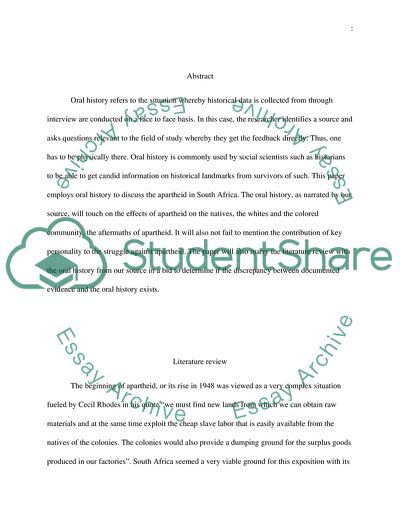Cite this document
(Oral History: Apartheid in South Africa Literature review Example | Topics and Well Written Essays - 2750 words, n.d.)
Oral History: Apartheid in South Africa Literature review Example | Topics and Well Written Essays - 2750 words. https://studentshare.org/history/1852291-oral-history
Oral History: Apartheid in South Africa Literature review Example | Topics and Well Written Essays - 2750 words. https://studentshare.org/history/1852291-oral-history
(Oral History: Apartheid in South Africa Literature Review Example | Topics and Well Written Essays - 2750 Words)
Oral History: Apartheid in South Africa Literature Review Example | Topics and Well Written Essays - 2750 Words. https://studentshare.org/history/1852291-oral-history.
Oral History: Apartheid in South Africa Literature Review Example | Topics and Well Written Essays - 2750 Words. https://studentshare.org/history/1852291-oral-history.
“Oral History: Apartheid in South Africa Literature Review Example | Topics and Well Written Essays - 2750 Words”. https://studentshare.org/history/1852291-oral-history.


